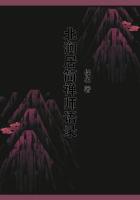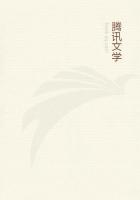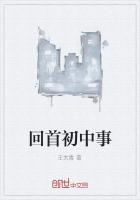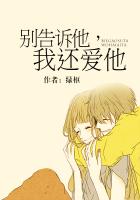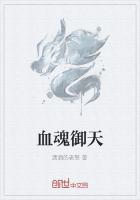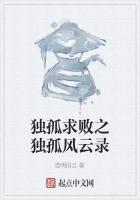This Arwacan pilot, with the rest, feared that we would have eaten them, or otherwise have put them to some cruel death: for the Spaniards, to the end that none of the people in the passage towards Guiana, or in Guiana itself, might come to speech with us, persuaded all the nations that we were men-eaters and cannibals. But when the poor men and women had seen us, and that we gave them meat, and to every one something or other which was rare and strange to them, they began to conceive the deceit and purpose of the Spaniards, who indeed, as they confessed took from them both their wives and daughters daily . . . But I protest before the Majesty of the living God, that I neither know nor believe, that any of our company, one or other, did offer insult to any of their women, and yet we saw many hundreds, and had many in our power, and of those very young and excellently favoured, which came among us without deceit, stark naked. Nothing got us more love amongst them than this usage; for I suffered not any man to take from any of the nations so much as a pina (pineapple) or a potato root without giving them contentment, nor any man so much as to offer to touch any of their wives or daughters; which course, so contrary to the Spaniards, who tyrannize over them in all things, drew them to admire her Majesty, whose commandment I told them it was, and also wonderfully to honour our nation. But I confess it was a very impatient work to keep the meaner sort from spoil and stealing when we came to their houses; which because in all I could not prevent, I caused my Indian interpreter at every place when we departed, to know of the loss or wrong done, and if aught were stolen or taken by violence, either the same was restored, and the party punished in their sight, or else was paid for to their uttermost demand. They also much wondered at us, after they heard that we had slain the Spaniards at Trinidad, for they were before resolved that no nation of Christians durst abide their presence; and they wondered more when I had made them know of the great overthrow that her Majesty's army and fleet had given them of late years in their own countries.
After we had taken in this supply of bread, with divers baskets of roots, which were excellent meat, I gave one of the canoas to the Arwacas, which belonged to the Spaniards that were escaped; and when I had dismissed all but the captain, who by the Spaniards was christened Martin, I sent back in the same canoa the old Ciawani, and Ferdinando, my first pilot, and gave them both such things as they desired, with sufficient victual to carry them back, and by them wrote a letter to the ships, which they promised to deliver, and performed it; and then I went on, with my new hired pilot, Martin the Arwacan. But the next or second day after, we came aground again with our galley, and were like to cast her away, with all our victual and provision, and so lay on the sand one whole night, and were far more in despair at this time to free her than before, because we had no tide of flood to help us, and therefore feared that all our hopes would have ended in mishaps.
But we fastened an anchor upon the land, and with main strength drew her off; and so the fifteenth day we discovered afar off the mountains of Guiana, to our great joy, and towards the evening had a slent (push) of a northerly wind that blew very strong, which brought us in sight of the great river Orenoque; out of which this river descended wherein we were. We descried afar off three other canoas as far as we could discern them, after whom we hastened with our barge and wherries, but two of them passed out of sight, and the third entered up the great river, on the right hand to the westward, and there stayed out of sight, thinking that we meant to take the way eastward towards the province of Carapana; for that way the Spaniards keep, not daring to go upwards to Guiana, the people in those parts being all their enemies, and those in the canoas thought us to have been those Spaniards that were fled from Trinidad, and escaped killing. And when we came so far down as the opening of that branch into which they slipped, being near them with our barge and wherries, we made after them, and ere they could land came within call, and by our interpreter told them what we were, wherewith they came back willingly aboard us; and of such fish and tortugas' (turtles) eggs as they had gathered they gave us, and promised in the morning to bring the lord of that part with them, and to do us all other services they could. That night we came to an anchor at the parting of the three goodly rivers (the one was the river of Amana, by which we came from the north, and ran athwart towards the south, the other two were of Orenoque, which crossed from the west and ran to the sea towards the east) and landed upon a fair sand, where we found thousands of tortugas' eggs, which are very wholesome meat, and greatly restoring; so as our men were now well filled and highly contented both with the fare, and nearness of the land of Guiana, which appeared in sight.
In the morning there came down, according to promise, the lord of that border, called Toparimaca, with some thirty or forty followers, and brought us divers sorts of fruits, and of his wine, bread, fish, and flesh, whom we also feasted as we could; at least we drank good Spanish wine, whereof we had a small quantity in bottles, which above all things they love. I conferred with this Toparimaca of the next way to Guiana, who conducted our galley and boats to his own port, and carried us from thence some mile and a-half to his town; where some of our captains caroused of his wine till they were reasonable pleasant, for it is very strong with pepper, and the juice of divers herbs and fruits digested and purged. They keep it in great earthen pots of ten or twelve gallons, very clean and sweet, and are themselves at their meetings and feasts the greatest carousers and drunkards of the world.

